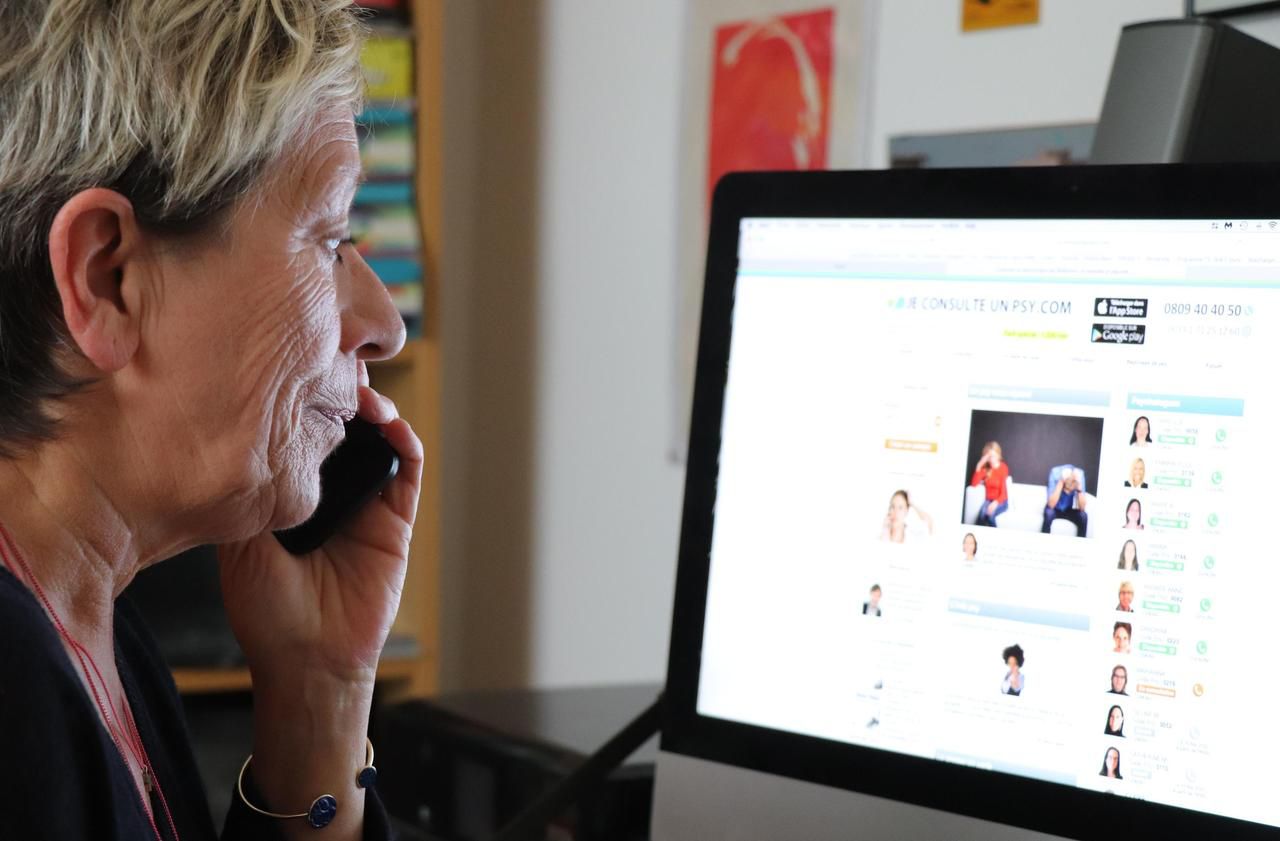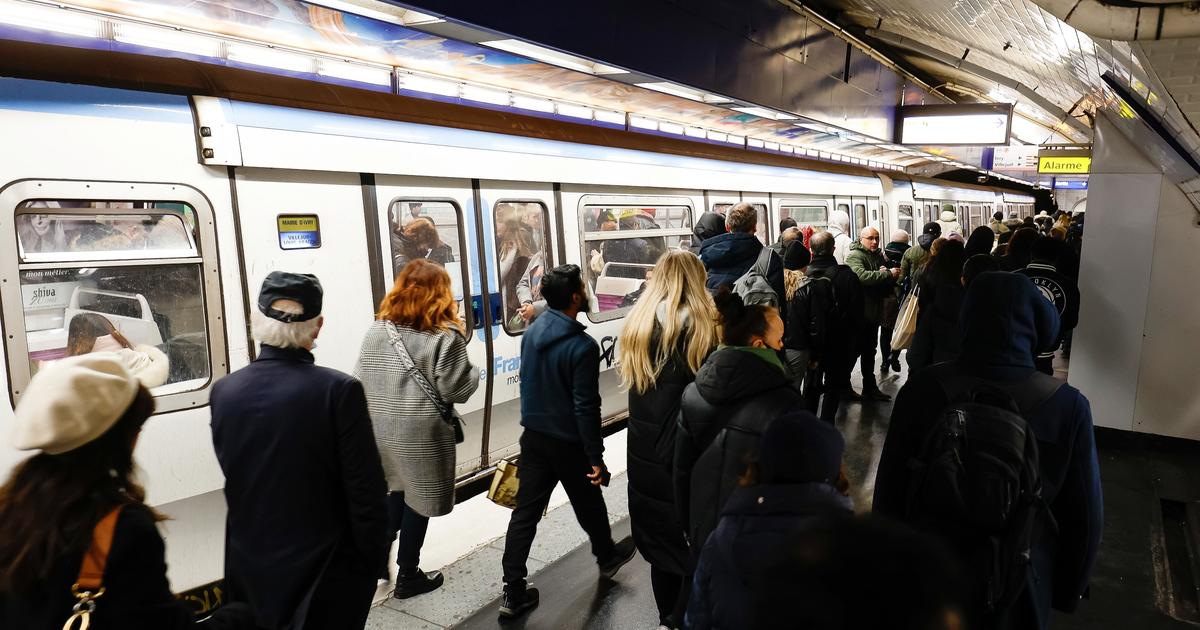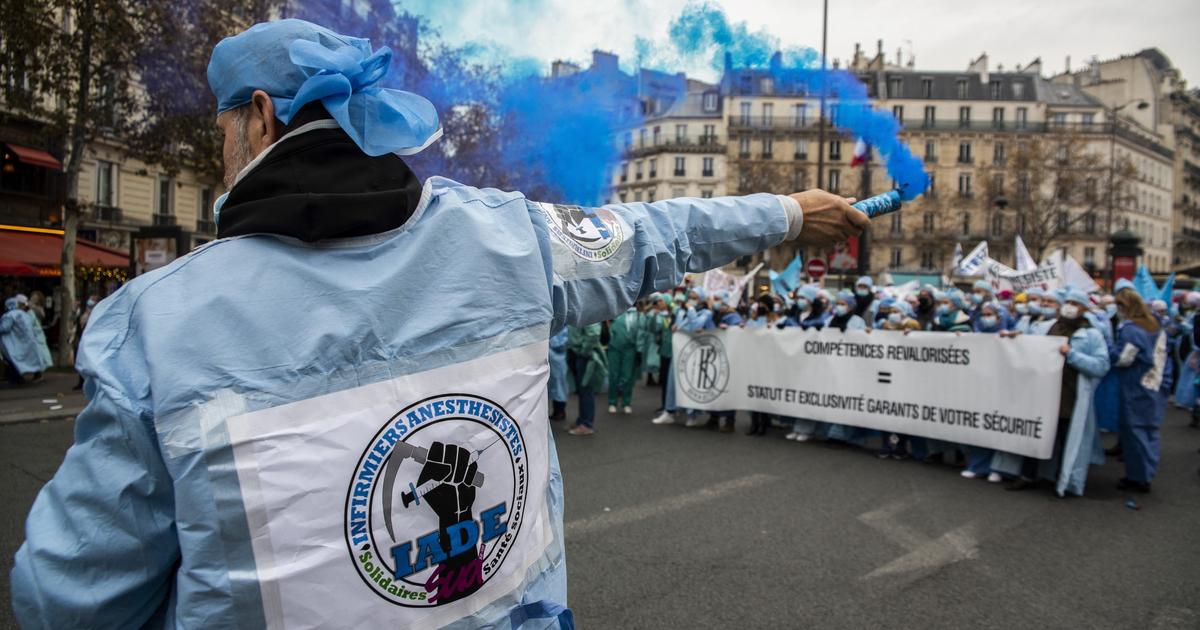Two months of exhausting struggle against death have left their mark. While the Covid-19 epidemic is far from over, but seems to be marking time, French caregivers are marked psychologically. "They are calling for help! The deconfinement and the prospect of a second epidemic wave do not help anything, "sums up the SPS association, dedicated to supporting caregivers, with the agreement of the ARS Île-de-France.
It mobilizes one hundred psychologists to listen to the health workers by telephone. In 30 days, it received 3000 calls: as many as in two years of existence!
"The anxiety and exhaustion are increasing, with an expression of personal suffering ever stronger," confirms Elisabeth Lustgarten, 65, one of the psychologists in charge of listening. From 70 psychologists, SPS has grown to 100, with peaks at 200 calls per day. Calls of 25 to 40 minutes, sometimes in the middle of the night, to say tiredness, discomfort and fears.
"Worn out by fear of taking the virus home"
“In the heart of the epidemic, from the end of March to mid-April or the end of April, the caregivers confided above all on an incredible work overload. Sometimes almost 250 hours of work per month, causing a very negative impact on their life as a couple and family, ”details Elisabeth Lustgarten.
She continues: “Beyond physical fatigue, caregivers are also worn out by the fear of taking the virus home, in their families, when they return home. "
"Especially since some have tested positive, and were afraid to pass it on to their children and their spouses," continues the psychologist. Who notes, worried, that many of the nurses and infected doctors who contacted her, "their hierarchy asked to come back to work ... even before they were cured".
Then, as the days went by, the substance of the calls - the number of which has weakened over the past ten days - changed, at the same time that the containment and the fight against the epidemic were producing results. "But, with the deconfinement, the possibility of going out for people, and therefore, the possibility envisaged by the authorities that a second epidemic wave will occur, the caregivers who call us suffer from the problems linked to decompensation", still warns Elisabeth Lustgarten.
Seine-Saint-Denis Newsletter
Every morning, the news of your department seen by Le ParisienI'm registering
Your email address is collected by Le Parisien to allow you to receive our news and commercial offers. Find out more
Clearly: fatigue and the fear of infecting loved ones, have gradually given way to deeper trauma.
Recurring nightmares
"With the decline in the intensity of the epidemic, caregivers have had time to cogitate, and some are now saying that they do not want to go to work if there is a new crisis, because the first was too lasts, in conditions of lack of means that are too complicated, ”explains the psychologist.
She also notes "a significant number of people who have recurring nightmares, who think of death, rehash special cases of patients who have marked them, often the youngest". Many "sleep more, or very poorly." And this does not only concern hospital health workers: "I have had dentists who are going to go back to work the ball in the stomach, who do not want to spend their day above open mouths ..."
What traces will caregivers keep of it? "It's hard to say, you shouldn't be alarmist, but realistic," advises the psychologist cautiously. As it stands, we see an increase in depressive states, and heavy depressions already exist. "
Peaks at 200 calls per day
The SPS association, whose hundred psychologists receive calls from all over France, with a majority (31%) from Île-de-France, has started to analyze the first statistical results of these calls.
Thus, out of almost 2,000 calls analyzed, 58% report "anxiety or anxiety" when faced with the Covid-19, and 11% report "burnout".
Note, too, that in March-April, at the height of the crisis, 27% of calls were made at night, or on Sunday. "A disturbing signal," said the association. On average, 73 calls were made per day over the most critical period. "There have been peaks at 200 calls per day," notes SPS. Before Covid-19, we had 4 or 5 calls a day.
Even more serious: the suicidal connotation of some of these exchanges with psychologists. "During the key week from April 20 to 26, there were 4 calls with the risk of impending action," says the association. Against only one per week before, ”says the association.
The association's toll free number is as follows: 0805.23.23.36Caregivers say: "The crisis has revealed the flaws in the healthcare system"









